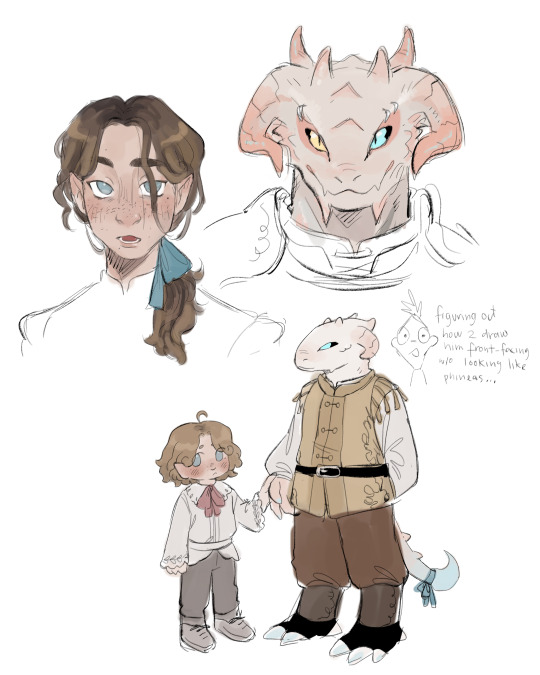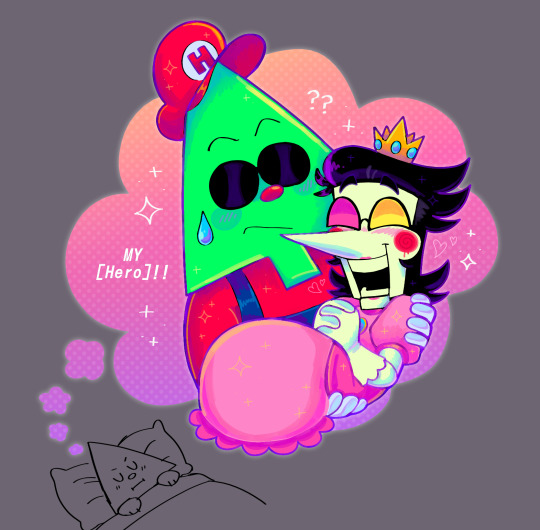#didnot
Explore tagged Tumblr posts
Text
Negative Declarative Sentences: Structure, Usage, and Style

Definition of a Negative Sentence:
A negative sentence is a grammatical construction that indicates the absence or negation of an action, event, or state of being. This transformation turns an affirmative sentence into a negative one, helping to convey the opposite meaning. Negative sentences are crucial for expressing denial, contradiction, or the absence of an action or occurrence in various contexts and tenses. Negative Sentences in Tense forms: Let's explore negative sentences in various tenses, focusing on the predicate form. In English, a negative sentence is formed by adding the word not after the auxiliary verb or, in the case of simple tenses, after the be verb. Here are examples in present, past, future, and perfect tenses: Present Tense: Simple Present: Positive: She plays the piano. Negative: She does not play the piano. (or She doesn't play the piano.) Present Continuous: Positive: They are studying for the exam. Negative: They are not studying for the exam. (or They aren't studying for the exam.) Present Perfect: Positive: He has completed the project. Negative: He has not completed the project. (or He hasn't completed the project.) Past Tense: Simple Past: Positive: I visited the museum yesterday. Negative: I did not visit the museum yesterday. (or I didn't visit the museum yesterday.) Past Continuous: Positive: We were playing basketball. Negative: We were not playing basketball. (or We weren't playing basketball.) Past Perfect: Positive: She had already finished her book. Negative: She had not finished her book. (or She hadn't finished her book.) Present Perfect Tense: Present Perfect Simple: Positive: They have seen that movie. Negative: They have not seen that movie. (or They haven't seen that movie.) Present Perfect Continuous: Positive: He has been working on the project. Negative: He has not been working on the project. (or He hasn't been working on the project.) Future Tense: Simple Future: Positive: She will visit her parents next weekend. Negative: She will not visit her parents next weekend. (or She won't visit her parents next weekend.) Future Continuous: Positive: They will be studying for the test. Negative: They will not be studying for the test. (or They won't be studying for the test.) Future Perfect: Positive: He will have completed the assignment by then. Negative: He will not have completed the assignment by then. (or He won't have completed the assignment by then.) Negative Sentences with Modal words: Modal verbs play a significant role in expressing various shades of meaning in English. A negative sentence with modal verbs is formed by combining the modal verb with the word not to express a lack of necessity, ability, permission, or other modal meanings. Here are examples of negative sentences using modal verbs in different tenses: Present Tense: Can: Positive: She can swim. Negative: She can not swim. (or She can't swim.) Must: Positive: You must finish the assignment. Negative: You must not finish the assignment. (or You mustn't finish the assignment.) Past Tense: Could: Positive: He could solve the puzzle. Negative: He could not solve the puzzle. (or He couldn't solve the puzzle.) Should: Positive: We should attend the meeting. Negative: We should not attend the meeting. (or We shouldn't attend the meeting.) Future Tense: Will: Positive: They will succeed. Negative: They will not succeed. (or They won't succeed.) Would: Positive: She would help if she could. Negative: She would not help even if she could. (or She wouldn't help even if she could.) Usage of “not” in Sentence with multiple Auxiliary Verbs: In sentences with multiple auxiliary verbs or modal verbs, the word not is typically placed after the first auxiliary verb. This pattern continues for each subsequent auxiliary or modal verb in the sentence. This ensures that the negation is applied to the entire verb phrase, conveying the negative meaning accurately. Here are examples covering different situations: They are not studying for the exam. (or They aren't studying for the exam.) She can not play the guitar. (or She can't play the guitar.) She had not completed the project. (or She hadn't completed the project.) They should not have attended the meeting. (or They shouldn't have attended the meeting.) They will not be studying for the test. (or They won't be studying for the test.) She will not finish the project on time. (or She won't finish the project on time.) Negative Sentences with Negative Words: These negative words, such as no, never, no one, nothing, nowhere, and neither...nor, contribute to the formation of negative sentences. Here are examples of their usage in various situations: No: There is no coffee left in the pot. She has no time to attend the meeting. Never: I have never visited that country before. He has never seen such a beautiful sunset. No One: There is no one in the room. She knows no one who can solve this problem. Nothing: There is nothing to worry about. He said nothing during the entire meeting. Nowhere: We looked, but he was nowhere to be found. There is nowhere I'd rather be than at home. Neither...Nor: He is neither a doctor nor a lawyer. She has neither the time nor the resources to undertake such a project. Definition of Usage: No: Indicates the absence or lack of something. Never: Denotes the absence of an action or occurrence at any time. No One: Refers to the absence of any person. Nothing: Represents the absence or lack of anything. Nowhere: Points to the absence of a location or direction. Neither...Nor: Connects two negative elements and is used to indicate the absence or negation of both options. Double Negatives for Rhetorical Effect: In standard English grammar, it's generally not advisable to use double negatives, as they can lead to confusion or ambiguity. However, there are specific cases where double negatives are used for emphasis or rhetorical effect. It's important to note that while double negatives might be used for emphasis or stylistic reasons in certain contexts, they are not always recommended in formal or standard English. Clarity and precision in communication are generally better achieved with single negatives. No: There is no reason not to try. Here, the double negative is used for emphasis, suggesting a strong affirmation. Never: I will never tell you no lies. In this example, the double negative is used for emphasis and poetic effect. No One: There is no one who does not appreciate a good laugh. The double negative is used for emphasis on the universality of appreciation for laughter. Nothing: There is nothing I would not do for my family. The double negative is used to emphasize the extent of willingness to do anything for family. Nowhere: He could find nowhere to hide and not be discovered. The double negative emphasizes the difficulty of finding a hiding place. Neither...Nor: She has neither the patience nor the inclination not to succeed. The double negative emphasizes the determination to succeed in both aspects. Negative words and Their Alternative forms: These alternative forms maintain the negative sense of the original words and phrases while providing different ways to express the same ideas. No: There is no reason to worry. /There is not a reason to worry. He has no interest in politics. /He has not any interest in politics. I have no idea where it is. /I have not any idea where it is. Never: I have never been to that place. /I have not ever been to that place. She will never forgive him. /She will not ever forgive him. He never speaks during the meeting. /He does not ever speak during the meeting. No One: There is no one who can solve this problem./There is not a single person who can solve this problem. I know no one in this city. /I know not a soul in this city. She spoke, but no one listened. /She spoke, but not a soul listened. Nothing: There is nothing to worry about. /There is not anything to worry about. He said nothing during the meeting. /He said not a word during the meeting. She found nothing in the box. /She found not a thing in the box. Nowhere: We searched, but he was nowhere to be found. /We searched, but he was not anywhere to be found. There is nowhere I'd rather be. /There is not anywhere I'd rather be. He looked nowhere else. /He looked not anywhere else. Neither...Nor: He is neither a doctor nor a lawyer. /He is not either a doctor nor a lawyer. She eats neither meat nor fish. She eats not either meat nor fish. Neither of them knew the answer. /Not either of them knew the answer. Negative Subjects expressed by Negative Pronouns: When dealing with negative subjects, it's important to use specific negative pronouns like no one, nobody, nothing, or no, and neither...nor with nouns. Using not and any alone may not be suitable replacements for negative subjects. Here are examples illustrating this point: No One: Incorrect: Not knows about the plan. Correct: No one knows about the plan. Nobody: Incorrect: Not came to the party. Correct: Nobody came to the party. Nothing: Incorrect: Not was found in the box. Correct: Nothing was found in the box. No: Incorrect: Not is allowed to enter without permission. Correct: No one is allowed to enter without permission. Neither...Nor with Nouns: Incorrect: Not the cat nor the dog likes the new food. Correct: Neither the cat nor the dog likes the new food. Negative Sentence with There is: When using the phrase there is to introduce a subject in a sentence, negative subjects can be expressed using specific negative pronouns like no one, nobody, and nothing. Additionally, you can use the structure not...anyone, not...anybody, and not...anything to convey a negative subject. Here are examples: No One: There is no one in the room. There is not anyone in the room. Nobody: There is nobody at the door. There is not anybody at the door. Nothing: There is nothing to worry about. There is not anything to worry about.
About Negative Declarative Sentences:
When it comes to negative declarative sentences, there are a few additional considerations to keep in mind: Word Order: In negative declarative sentences, the typical word order is subject + auxiliary verb + "not" + main verb + the rest of the sentence. She does not like coffee. They have not seen the movie. Contractions: Contractions, such as isn't, don't, and haven't, are commonly used in negative declarative sentences for a more informal tone. She isn't coming to the party. We don't know the answer. They haven't finished the project. Use of But for Contrast: But is often used in negative declarative sentences to introduce a contrasting statement. He studied for hours, but he did not pass the exam. Negative Intensifiers: Negative declarative sentences can be intensified with words like never, absolutely not, or not at all. She never agrees with my opinions. I will absolutely not attend the meeting. Use of Negative Adverbs: Negative adverbs like barely, hardly, and scarcely can be used to emphasize the negative aspect of a statement. He barely finished his assignment on time. Avoiding Double Negatives: While double negatives can be used for emphasis or rhetorical effect, standard English generally avoids them in formal writing or speech for clarity. Incorrect: I don't need no help. Correct: I don't need any help. Expressing Prohibition or Restriction: Negative declarative sentences are commonly used to express prohibition or restriction. You cannot enter without permission. Negative Declarative Sentences: Structure, Usage, and Style Stylistic Elegance: The Role of Subject-Verb Inversion in Language Declarative Sentence in English Grammar Parallelism in English Grammar Read the full article
#absence#absolutelynot#anybody#anyone#anything#anywhere#barely#cannot#contradiction#declarative#denial#didnot#doesnot#hardly#havenot#mustnot#negation#negative#neither..nor#never#noone#nobody#nothing#nowhere#ofaction#scarcely#sentence#tobe+not#willnot
1 note
·
View note
Video
youtube
My First Gym Vlog https://newsinfitness.com/my-first-gym-vlog/
0 notes
Text

hey. your legs are on backwards?
#fnaf#fnaf sb#fnaf sun#sundrop#daycare attendant#dca#my art#logging back on 2day & seeing all the nice comments left on my last post.i didNOT expect that attention u guys scared me so bad.but thanks#u made me wanna post this thing that i've had sitting on the computer for a few days.#this is from Something that im working on.
785 notes
·
View notes
Text

#sephiroth#ff7#final fantasy vii#doodle#Trying to learn grayscale first then add color#but i feel like i still didnot get it#ahhhh#you have a type don't you?
491 notes
·
View notes
Text

104 notes
·
View notes
Text

Pharma 💅🪛
A DTIYS from IG that I just needed to draw. Inspired by a past Milne art of Pharma because that’s what popped into my head when I saw that DTIYs lol.
No shades/lettering/blur version ⬇️

#pharma#maccadam#mtmte#transformers#mtmtepharma#myart#i didnot bother with clean lineart this time nor details because it was supposed to be something chill#but i think it worked out too well hhfhfhf#ngl i love nice pharma but unhinged pharma is fun too
170 notes
·
View notes
Text





yeah... i've been going up baldy... (ids in alt)
#baldur's gate 3#bg3 tav#niksartstuffs#go up baldy go up#the best part about baldy's gate three is that i. didnot pay for it sdfdfgfsv no but its a timesucker for sure. when. i have time that is.#also. i DL'd a mod that made the dragonborn beefier. big recommend. nivali rly is just breasting boobily out here. warms my scalie heart.#his big bounteous bosom.... torn btwn going my usual route of being so aroace or splitting the romances btwn niv & canary#gale/wyll/karlach for niv & laezel/shadowheart/astarion for canary. i think that sounds right... and then kath can be aro. for me <3
325 notes
·
View notes
Text

day 9
hacker's weird gamer dream
#I didnot forget them. i did not#cringetober#deltarune#hacker#spamton#hackerton#hackton#?#cant remember the name sorry#rarepair#crackship#doodle
303 notes
·
View notes
Text




more @legendlarkpod doodles. guardians 👍
bonus falen :p

#legendlark#dames and dragons#falen#laika#corbin#slake#fran#aaart#quite frankly i finished 3 od these before i remembered they have canon designs. it was a dark day for me#sorry no maeri i actually cannot conceptualize her in my head#shes like a formless blob in here (knocks on my head and a hollow ring lets out)#falen is just fakir princess tutu in my head tho#pretend slake has goggles i didnot feel like drawing that shit. im sorry slake#bro leave it to me to get into a dnd podcast when theyre posting their final arcs/episodes. its SICK
77 notes
·
View notes
Text

there's an ant in the gay bar .. ?
#art#spark the electric jester#spark#didnot mean for funny status drawing to actually look really good but SIRYES SIR OORAH
202 notes
·
View notes
Photo

🌭!!
#ted lasso#ted lasso fanart#trent crimm#tedependent#ted x trent#drew this while im having the worstttt headache rn X_X!!!!#so i just didnot give a damn if its messy auhhh#pn.art#WAS GONNA SAY THATWE DIDNT GET PROMO PICS TONIGHT BUTTHEY JUST DROPPED IT HELLOOOOOOOO#GO GIRL!!!!! EXPLAIN NOTHING!!!!!!!!!! OH FUCK#im gonna fix my tags later this headache is KILLIN ME!! GOODNITE!!!!!!
440 notes
·
View notes
Text

absolute unbridled joy
#richie lipschitz you didnot deserve to die#jon matteson you slayed#nerdy prudes must die#richie lipschitz
170 notes
·
View notes
Text

Going Home is 5 years old now! Wow! Can't believe it's been this long :')
Thank you everyone who reads this silly little comic of mine! It means a lot to me that people enjoy it :] ! Also, doubling this as a bit of an announcement but I'm out of the hecticness of my semester's end! I'll be back to working on the comic, we'll be back sometime in January. See you then!
#i wanted to make something with Whole Cast but i simply didnot have Time..#didnt even think id get to make something at all! glad i di tho. i like how it turned out :]#bonus art#going home#going home comic#going home webcomic#announcement#misc
24 notes
·
View notes
Note
think i saw you in an rtvs stream the other day, shouts out, good taste 🐏
Oh lmao yeah sorry if you actually saw that </3
#mailbox#yeagh i managed to catch the last couple soc[]ens streams live and got excited ig#didnot mean to be noticeable tho my bad 👍 forgot what i put in the chat but hopefully it wasn't too annoying#+ i don't think you can delete twitch comments after they're saved or whtv so uhm. i can't go back to get rid of them now
25 notes
·
View notes
Text
Drawing my moots in their f/o's clothes for February ヽ( ̄▽ ̄)ノ
Just send in an ask, a picrew and your f/o if you want to have one as well might just take a while though (;`・ω・)ノ this crab is very busy this month

1/?
Feat: @mlkbwunnies - @queen-belial - @mewnbuns - @meimeimeirin
hope you guys don't mind being tagged (;`・ω・)ノ
#psyscio rambles#just a fun lil thing#i didnot want to draw sundays gem thing-#and rin looks liek a classy businesswoman in zhongli's clothes#except queen looks like shes mourning-#oop-#void planets: genshin
12 notes
·
View notes
